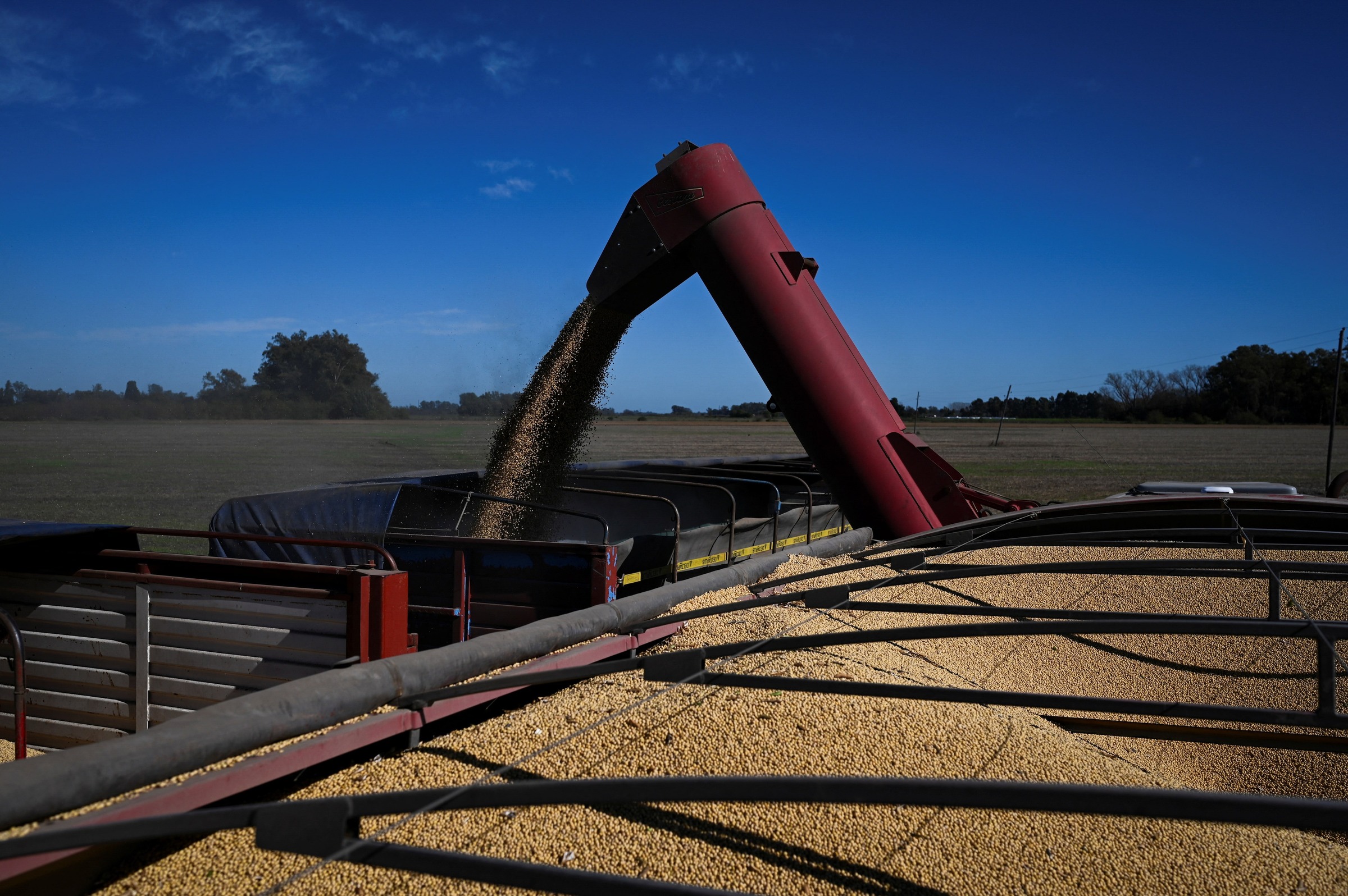Argentina's move makes its soybeans more competitive, prompting traders to stockpile for the fourth quarter in China. US soybeans typically dominate this period but have been impacted by the ongoing trade war between Washington and Beijing.
The shipments, each weighing 65,000 tons, are scheduled for November delivery. The selling price is USD 2.15-2.30 higher per bushel than futures contracts on the Chicago Board of Trade.
These purchases deal another blow to US farmers who have already lost billions of USD in soybean revenue to China this year. The stalled trade talks have effectively frozen exports, allowing other South American suppliers, led by Brazil, to fill the gap.
"The deals were done last night after Argentina scrapped the export tax. It's clear China doesn't need US beans," a trader told Reuters on 23/9.
 |
Soybeans are loaded onto a truck outside Buenos Aires, Argentina. Photo: Reuters |
Soybeans are loaded onto a truck outside Buenos Aires, Argentina. Photo: Reuters
China is the world's largest soybean importer. However, traders say China hasn't purchased any US soybeans since the autumn harvest.
Late last week, Chinese President Xi Jinping and US President Donald Trump held a phone call. However, neither side offered updates on agricultural trade. This further pressured Chicago soybean futures, which are currently at their lowest level in almost five years.
Earlier this month, Beijing nearly completed its soybean purchases for October delivery and ordered about 15% of its November needs, all from South America. In previous years, traders said China would have typically purchased 12-13 million tons from the US for delivery between September and November.
Argentina's elimination of grain export taxes is temporary, lasting only until the end of October or until declared export value reaches USD 7 billion. Previously, Argentina imposed a 26% export tax on soybeans.
Looking ahead, key factors to watch include the actual volume of Argentinian soybeans purchased and shipped, the outcome of the US-China trade talks, and the impact of these developments on soybean imports in the fourth quarter and early next year, concluded Wan Chengzhi, an analyst at Capital Jingdu Futures.
Ha Thu (Reuters)












